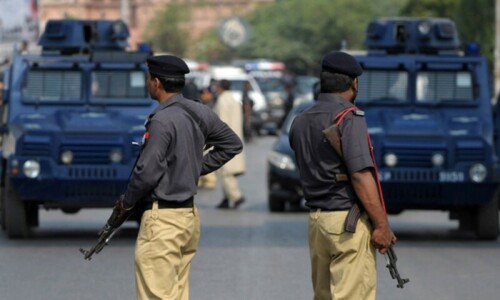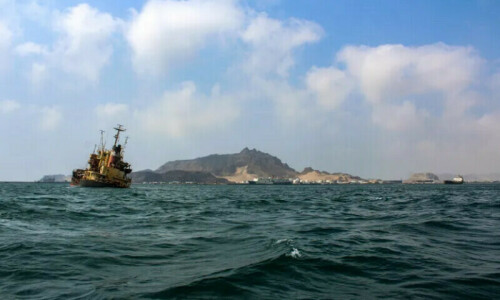KARACHI, March 14: Sindh will get Rs7,650 million as its share for carrying out development projects in the drought-affected districts out of Rs30 billion under the Drought Recovery Assistance Programme Project (DRAP)/DERA-II, approved by Ecnec with an implementation period of 60 months.
The Drought Emergency Relief Assistance/Drought Impact Mitigation and Recovery Component (DIMRC) Programme was developed in 2001 to overcome the adverse economic impact of the drought. Assistance of $100 million and $40 million was provided by the Asian Development Bank (ABD) and the World Bank (WB) respectively whereas the Government of Pakistan earmarked $20 million, making a total of $160 million equivalent to Rs10 billion. Thirty per cent of the allocation (Rs3billion) was earmarked for Sindh.
Out of 16 district existing at that time, 13 districts (five severally affected and eight moderately affected) were selected for the implementation of the programme. Funds in the ratio of 2/3rd and 1/3rd respectively were earmarked for severally affected districts and moderately affected districts. Selection and implementation of the schemes was made by the district governments in consultation with the community.For proper coordination and implementation of the programme, the provincial DERA unit was established in the Planning and Development Department at a total cost of Rs72.772 million against which an expenditure of Rs7.975 million was incurred up to June 2005. The unit played effective role in the implementation of the programme, which was completed well in time, and as such efforts of Sindh were appreciated by all the stakeholders.
After identification, approval and clearance of schemes by the district and provincial governments, the first tranche for the schemes was approved by the federal government in June 2002.
Subsequently, the schemes were prioritised in August 2002 and implementation started in September 2002.
Despite a number of constraints, such as shortage of staff, equipment and vehicles, Sindh took lead in the implementation of the programme.
Initially, a portfolio of 576 schemes costing Rs2948.852 million was conceived. Due to duplication and other reasons, certain schemes were deleted and additional schemes taken up.
The modified portfolio comprised 629 schemes with an approved cost of Rs3146.893 million against which 627 schemes stand completed at the cost of Rs2899.095 million.
The Federal DERA Unit' Implementation Cell also played a commendable role in monitoring and ensuring quality control of the works which was achieved through detailed field work carried out by the Federal Implementation Adviser and his assistants.
Through effective selection and implementation of the schemes, benefits of the programme trickled down to the grass-roots level and a population about 3 million people living in 2,653 villages in the province got direct relief in terms of various schemes located in the drought-affected areas.
The DERA programme is a success story which has been appreciated by all stakeholders, including donors. It is one of the very few foreign-aided programmes in the province/country which has been completed in time, well within the loan closing dates. -— PPI










































